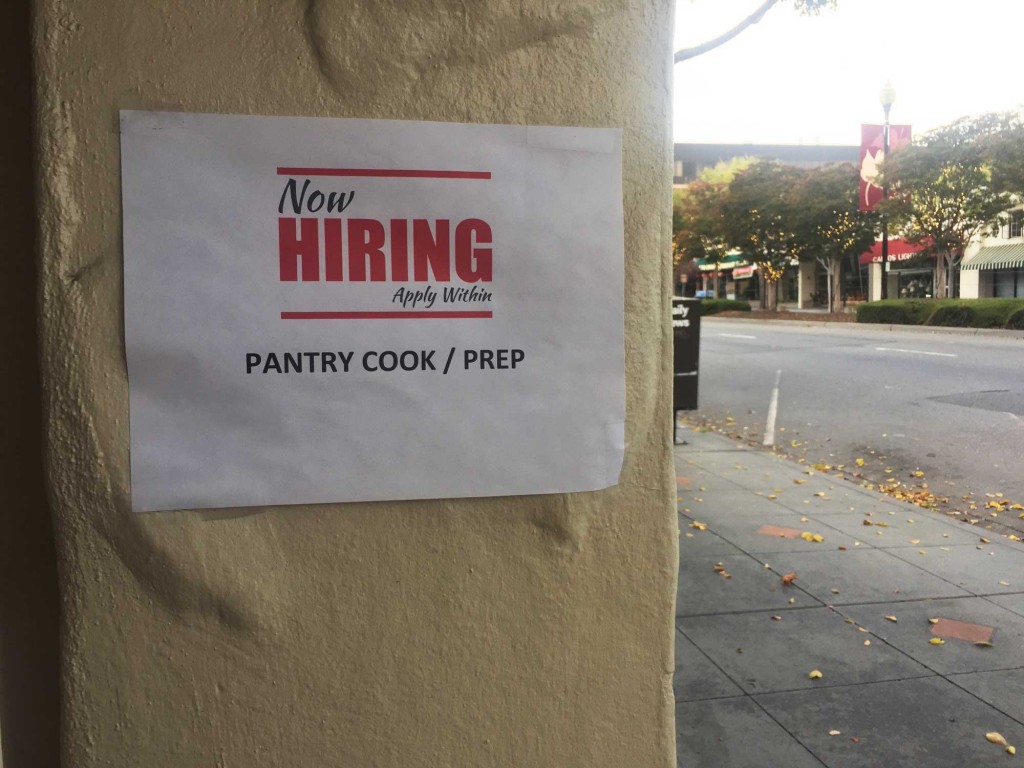
[infobox maintitle=”
UPDATE, Nov. 15 at 6:15 p.m. PT – Commercial Linkage Fee Ordinance passes
” subtitle=”” bg=”gray” color=”black” opacity=”off” space=”30″ link=”no link”]
At the Nov. 14 San Carlos City Council meeting, the Commercial Linkage Fee Ordinance passed at the proposed fee levels of $5 per square foot for retail and restaurants, $10 per square foot for hotels and $20 per square foot for office, medical office and research and development uses. Council members also voted for the fee to become effective on March 16, 2017 to allow commercial developers, who have already applied for space and are currently in the process, more time to complete their applications.
Original story:
[dropcap letter=”S”]an Carlos City Council is considering taxing commercial development of retail stores, restaurants and offices to raise funds for affordable housing.
The rationale behind a new commercial linkage fee on developers is that with more retail stores, restaurants and offices comes the demand for more employees who will want and need housing in the city.
At an Oct. 24 public hearing, the City Council motioned to introduce the Commercial Linkage Fee Ordinance to San Carlos, which council members are due to vote on at a Nov. 14 meeting. If approved, the fee would become effective 30 days thereafter.
San Carlos’ motion to adopt a commercial linkage fee comes as a number of the city’s businesses are struggling to find and retain employees due to a lack of affordable housing in the area.
The commercial linkage fee’s tax rate would be $10 per square foot for hotels, $5 per square foot for retail, restaurants and services, and $20 per square foot for office, medical office and research and development uses. The fee would apply only to commercial development projects proposed after the ordinance takes effect. Development projects adding less than 5,000 square feet and city buildings and facilities would be exempt from the tax.
Based on projected construction at those fee levels, city officials estimate that San Carlos could earn almost $24 million in total revenue for affordable housing by 2030.
Don Mancini, owner of Pioneer Millwork, a materials supplier to residential general contractors located in San Carlos, said his business has suffered as a result of skyrocketing rents in the city. “I’ve lost four employees in the last four months to moving out of state: one to Colorado, two to Texas and one to Kansas, and the whole reason they moved was because they couldn’t afford to live here,” he said.
Other San Carlos business owners have said employees are struggling to find housing and are leaving their jobs in San Carlos to find employment opportunities in cheaper rental markets, according to a San Carlos city staff report. Sophie Mintier, a management analyst with the San Mateo County Office of Sustainability, told the Redwood City City Council on Oct. 24 that 63 percent of people who work in San Mateo County live outside of its boundaries.
From 2010 to 2014, San Mateo County added about 55,000 new jobs and 2,200 new housing units according to Leora Tanjuatco, a policy director for San Mateo County’s Housing Leadership Council, a nonprofit membership organization that aims to preserve and expand affordable housing.
Business owners throughout the county say they are experiencing high turnover rates and have “Help Wanted” signs up in store windows for longer periods of time, Mintier said.
On a few blocks of San Carlos Avenue and Laurel Street in Downtown San Carlos, restaurants and shops like Cuisinett French Comfort Food, Starbucks, Le Boulanger, The Crepe Stop and Diddams currently have “Now Hiring” signs in their windows.
A study prepared for San Carlos in July 2016 showed the housing affordability gap in the city.
Telecommunication installers, event planners, hotel and motel desk clerks, restaurant cooks and food prep workers earn less than $65,000 per year, while the salary required to afford a one-bedroom unit in the city is over $100,000 per year, Martin Romo, San Carlos’s economic development coordinator, told the city’s planning commission on Oct. 3.
Over the past 15 years, the price per square foot of condominiums in Downtown San Carlos has risen from $300 in 2000 to $750 in 2015, according to the staff report.
With the proposed fee comes concerns over whether or not commercial developers will want to do business in San Carlos.
“Developers are very concerned with predictability. If cities are methodical and judicious with the application of linkage fees, developers will adjust their underwriting,” said Gary Johnson, vice president of The Acclaim Companies, a real estate development firm.
Al Savay, San Carlos’s community development director, said a commercial tax wouldn’t diminish the city’s attractiveness to developers. “They want to build on the Peninsula, and there’s only one Peninsula,” he said.
Palo Alto was one of the first cities to adopt commercial development taxes in 1984. Over the 24 years the program has existed, the city has built 377 new affordable housing units, according to Romo’s presentation to the planning commission. Development, it seems, has not slowed in Palo Alto due to the fees, Romo said.
Who qualifies for affordable housing and what kind of unit the person would be eligible to rent depends on income level relative to the county’s median income; in May 2016 it was $107,700. A family of four with an income of $36,900 would be considered “extremely low” income and therefore qualify for an affordable housing unit that is classified as such.
San Carlos has other programs in place to alleviate the housing crisis, including condominium conversion regulations that limit the number of conversions per year, transit-oriented development, incentivized land use controls that offer density bonuses and affordable housing impact fees.
Mancini said the adoption of the commercial linkage fee is “just another step” towards trying to develop more affordable housing in San Carlos and narrow the jobs and housing gap. But, he said, it doesn’t seem that the fee will have a very immediate impact.
“You have to start somewhere,” Mancini said.
